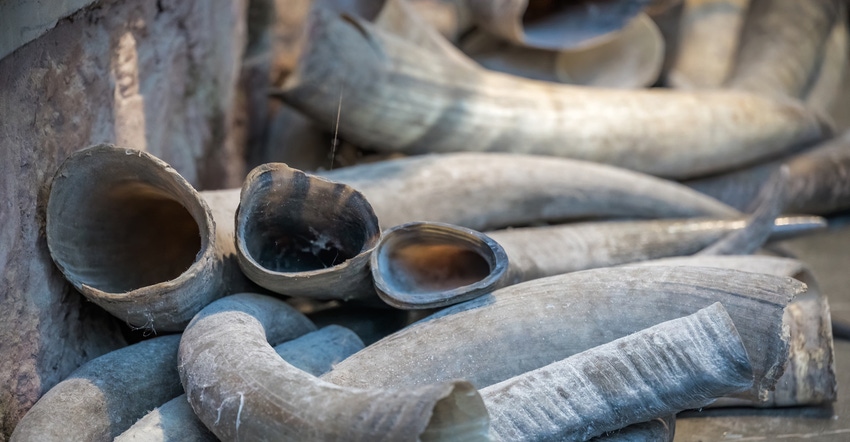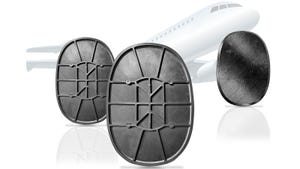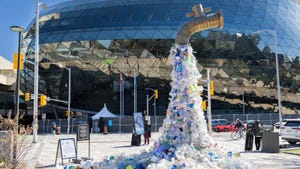Anti-Plastics Activists Shower Amazon with Praise . . . for Denying the Science
The world’s largest online retailer has banned a number of plastics in private-label food-contact products, despite the fact that decades-long studies have shown these polymers to be safe for humans under real-world conditions.
December 14, 2020

Anti-plastics activist group Safer Chemicals, Healthy Families praised Amazon’s announcement that it will ban certain toxic chemicals and plastics in food-packaging materials used for Amazon’s Kitchen brand. Per- and polyfluoroalkyl substances (PFAS), phthalates, BPA (and other bisphenols), PVC, PS, and expanded polystyrene are now restricted in certain private-label food-contact materials. Amazon’s new commitment is the latest update to the chemicals policy it first launched in 2018, which also restricts toxic chemicals in private-label baby, household cleaning, personal care, and beauty products as well as brand-name paint-removal products.
This is in spite of the fact that all of these polymers have been proven to be safe by FDA for food contact in the minute quantities they exist in food packaging. Decades-long studies of effects of various polymers on human health and wellness have never shown them definitively to be the cause of any type of endocrine or immune system disruption, cancer, or other illness. All polymers and additives used in food packaging meet the levels of safety specified by FDA.
Safer Chemicals, Healthy Families denigrated several major companies for not taking the same action as Amazon, calling out McDonald’s, Kroger, and Costco, which the activists claim “have not stood up for the health of their customers or the environment.” This is the modus operandi of these activist groups: Praise the companies that cave to their continued threats and denigrate those companies that stick to the science.
“No company should be using chemicals that can impair a person’s immune system, especially as we are battling a worldwide pandemic,” said Executive Director of Toxic-Free Future Laurie Valeriano in response to Amazon’s announcement.
Obviously, Valeriano hasn’t bothered to review the science and the many studies that show no direct causation for any immune system disruption. Not to mention that plastic materials certainly have nothing to do with the severity of the pandemic. If anything, plastic in single-use products and personal protective equipment such as masks and face shields have contributed to preventing the spread of the virus.
Mike Belliveau, Executive Director of Defend Our Health, stated, “Further reducing the use of chemicals like phthalates and PFAS that may harm brain development could help halt the epidemic of learning and developmental disabilities our children already suffer.” Belliveau should cite the studies that have definitively proven this to be the case, or else we’ll chalk up his statement to furthering the unscientific myths surrounding plastics.
Why would these activist groups deny the science of polymer materials that have been around for more than 100 years, and replaced elephant ivory, tortoise shells, and whale bone to manufacture products such as piano keys and hair combs, among other products? Isn’t this an important factor in saving animals?
Why wouldn’t the environmentalists want to use polymer materials rather than paper? They should know that the manufacture of paper products requires huge amounts of water and energy. Polymer materials allow for less fossil fuel use in transportation compared with paper. There are more single-use paper products in circulation than plastic, given that many plastic items, including retail t-shirt bags, are used at least twice. Getting rid of retail t-shirt bags increases consumer demand for new plastic bags to use for garbage sacks, cat litter, and so forth.
Why wouldn’t environmentalists want to use plastic materials rather than wood pulp from trees, when they are worried about deforestation? Paper bottles and paper containers and cups require liners — usually polyethylene — to make the cups, containers, and bottles leak-proof. The liners also make the paper cups and bottles non-recyclable, so where is the gain?
Efforts to create more and more polymer materials from plants have resulted in few gains in the reduction of CO2 because of the amount of greenhouse gas that is released when plants, such as sugar cane, are processed into plastic. Additionally, bioplastic, biodegradable, and compostable plastics represent little more than “greenwashing” when promoted as ways to solve the plastic pollution problem.
Why, also, do these anti-plastics activists choose to ignore and deny science by calling plastic materials “toxic,” when there is no evidence that their real-world use in products has caused any harm to humans. As one report on BPA noted, a person would have to actually eat several pounds of BPA for it to actually be harmful. When polymer producers find “safer” alternatives to try and answer the challenges of these activists, the bashing of plastics continues. Nothing is good enough for these science deniers.
Safer Chemicals, Healthy Families also pointed to a report by the Mind the Store campaign and Toxic-Free Future, which found that “major fast-food chains such as McDonald’s, Burger King, and Wendy’s still likely serve up toxic PFAS with some of their most popular takeout foods.” Why would they want to create this type of unscientific fear-mongering among consumers?
When New Jersey decided to sue Solvay and Arkema for PFAS in the water system, I asked state officials for the results of the testing that proved PFAS in the water was above the allowable levels for safety. They never answered my request for the information, most likely because they never had the water tested. It is likely more “fake science” created by the anti-plastic crowd.
Next year will be the year when the industry will need to step up and promote the science. People do care about the science — at least they say they do when it comes to things such as climate change. They say they trust FDA when it comes to getting vaccinated for various diseases, including COVID-19. But how much do they trust FDA when it provides extensive testing proving that plastics do not cause endocrine or immune system disruption, cancer, or other conditions in humans who drink water from a PET bottle, or heat their food in an HDPE container, or carry their food away from the Chinese restaurant in an EPS bowl, as I did today. Are there better, more eco-friendly solutions? If so, what are they? Hundreds of studies over the years have found that there are no materials better than plastics when the benefits are laid out side-by-side and the negative impacts are compared.
Trust the science is a mantra for the environmentalists when it comes to certain things, but not when it comes to plastic. It’s the environmentalists and these various activist groups that I do not trust. While I’m uncertain as to their exact agenda, if it is to rid the world of plastic, I challenge everyone who promotes these myths to be the first to eliminate everything from their lives that contains polymers.
About the Author(s)
You May Also Like




